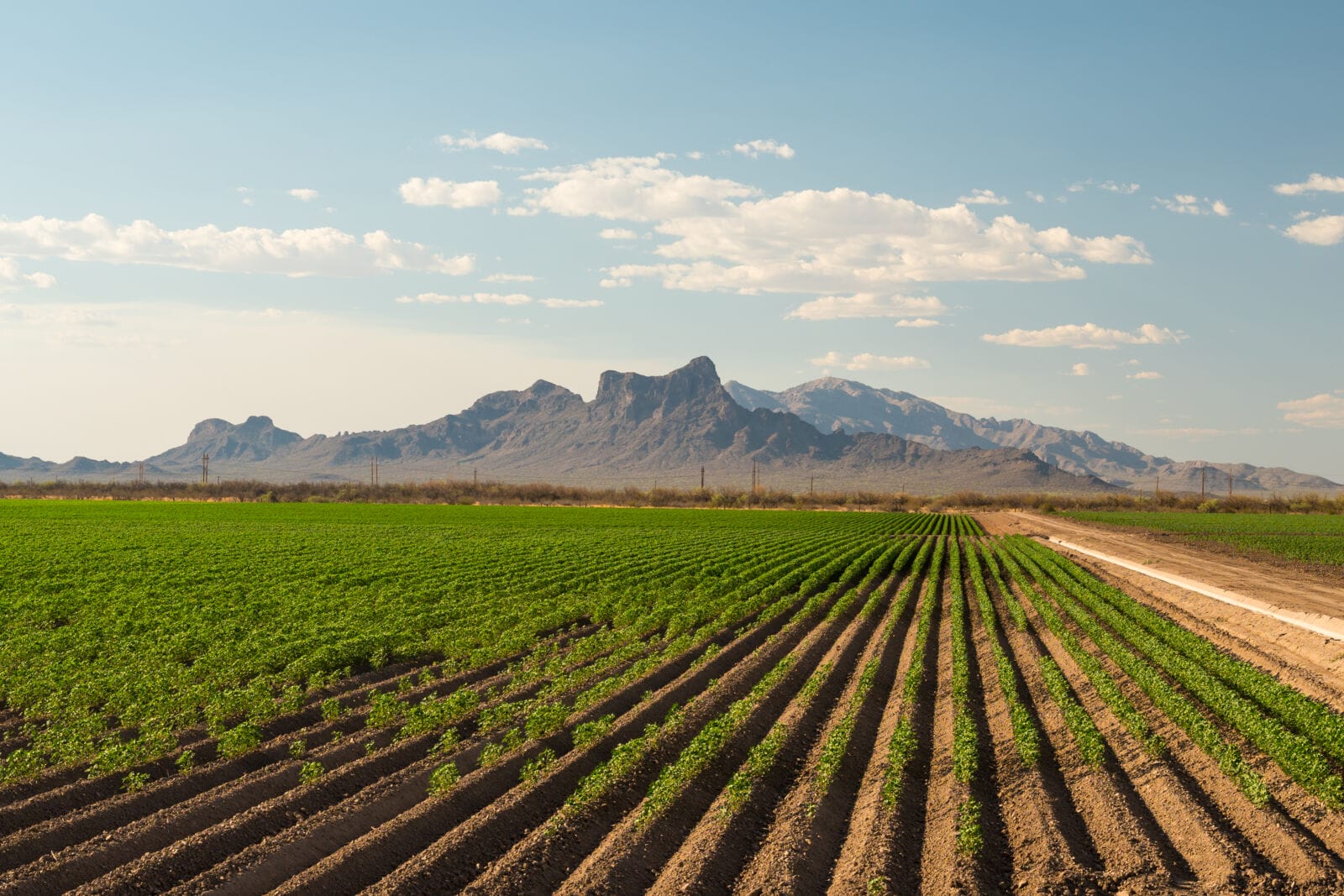Gov. Katie Hobbs last month signed SB 1611, enacting the most significant overhaul of Arizona’s groundwater policy in decades. The bipartisan “ag-to-urban” bill enables the conversion of irrigated farmland into housing while promoting aquifer replenishment and long-term water sustainability.
Over two legislative sessions, Craig Krumwiede, CEO of Harvard Investments, and Mike Cowley, CEO of Cowley Companies, worked with lawmakers, the governor’s office, the Arizona Department of Water Resources (ADWR), the Home Builders Association of Central Arizona (HBACA), and the Gammage & Burnham Water Group. Together, they helped build consensus among landowners, stakeholders, and Arizona residents.
“After the governor issued her moratorium (in 2024) on new housing developments, Harvard and the Cowley Companies felt strongly that we needed to offer a solution that would both address the moratorium and conserve our precious water resources,” Krumwiede said. “We worked closely with HBACA on crafting the legislation and shepherding it through the Legislature and governor’s office.”
MORE NEWS: Arizona Department of Water Resources sued over groundwater rule
The bill encourages the retirement of agriculture acreage, which uses substantially more water than housing. The net result will be saving significant amounts of water and providing much-needed housing to Arizona. This aligns with Harvard’s vision for sustainable growth and community building, Krumwiede added.
“We take our stewardship of the properties we develop seriously and this is simply another effort on our part to encourage responsible development,” he said. “We believe this bill will have a very positive impact on the affordability and supply of housing and save a substantial amount of our water resources.”
With the bill signed into law — it will go into effect on September 26 — Harvard Investments has already envisioned the next steps in implementing “ag-to-urban” in future projects.
“Harvard has several projects that are currently farmed. With this bill in place, we anticipate retiring the properties’ agricultural water rights and developing the properties to provide more broadly available and attainable housing,” Krumwiede said.
The “ag-to-urban” program addresses a critical obstacle in Arizona’s housing future: the moratorium on new groundwater-based assured water supply determinations. This restriction stalled the potential development of tens of thousands of homes across the Metro Phoenix periphery and Pinal County.
“History has shown us that the conversion of farmland to homes is a net positive for our aquifer; we use less water today than we did in 1950,” Cowley said. “The legislation we introduced seemed like a common-sense solution to the housing affordability crisis we are facing while protecting our most precious resource.”
“The genesis of this legislation was a project we were working on in Buckeye that was stalled midstream by the moratorium. Upon implementation of the program, we fully intend to apply and hope that this first project can be a shining example of the benefits of ag-to-urban,” Cowley added.
Key provisions of SB 1611:
- Voluntary conversion: Farmers can retire irrigated land and transfer water rights to developers using only a portion of historical water use.
- Long-term water credits: Projects in the Phoenix Active Management Area (AMA) receive 1.5 acre-feet per acre for 100 years; in Pinal AMA, 1.0 acre-foot per acre for 100 years.
- Conservation standards: Turf, lakes, and water-intensive amenities are restricted to ensure water efficiency and development feasibility.
- Eligibility rules: Only irrigation grandfathered rights with recent active use qualify, requiring developers to evaluate project viability carefully.
- Aquifer replenishment: Groundwater used in new subdivisions must be offset through replenishment with alternative water sources.
Developers, municipalities, and water providers are encouraged to begin identifying eligible lands and coordinating on future project criteria. SB 1611 opens the door for Arizona to harmonize development and conservation efforts, paving the way for a new strategy in how the state approaches expansion in regions where groundwater-dependent housing is currently restricted, said Alexandra Arboleda, a water and natural resources law attorney with Gammage & Burnham.
“We believe the best legal solutions support both growth and resource stewardship. SB 1611 is a model of that philosophy in action,” Arboleda said. “It enables much-needed housing development while conserving water and encouraging smart land use. We’re proud to have helped shape a policy that supports Arizona’s long-term sustainability and provides real tools for communities to grow responsibly.”




